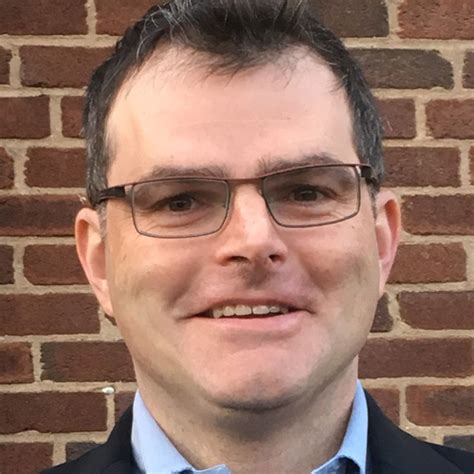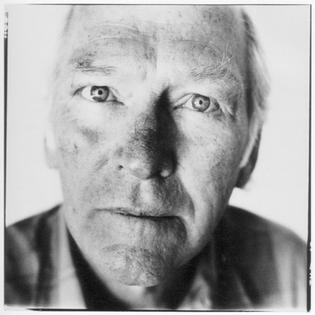A Quote by Scott Stossel
It is an irony of medical history that even as Freud's later work would make him the progenitor of modern psychodynamic psychotherapy, which is generally premised on the idea that mental illness arises from unconscious psychological conflicts, his papers on cocaine make him one of the fathers of biological psychiatry, which is governed by the notion that mental distress is partly caused by a physical or chemical malfunction that can be treated with drugs.
Quote Topics
Arises
Biological
Caused
Chemical
Cocaine
Conflicts
Distress
Even
Fathers
Generally
Governed
Him
His
History
Idea
Illness
Irony
Later
Make
Malfunction
Medical
Medical History
Mental
Mental Illness
Modern
Notion
Papers
Partly
Physical
Psychiatry
Psychological
Psychotherapy
Treated
Unconscious
Which
Work
Would
Related Quotes
I know no study which is so unutterably saddening as that of the evolution of humanity, as it is set forth in the annals of history. Out of the darkness of prehistoric ages man emerges with the marks of his lowly origin strong upon him. He is a brute, only more intelligent than the other brutes, a blind prey to impulses, which as often as not led him to destruction; a victim to endless illusions, which make his mental existence a terror and a burden, and fill his physical life with barren toil and battle.
If a psychological Maxwell devises a general theory of mind, he may make it possible for a psychological Einstein to follow with a theory that the mental and the physical are really the same. But this could happen only at the end of a process which began with the recognition that the mental is something completely different from the physical world as we have come to know it through a certain highly successful form of detached objective understanding. Only if the uniqueness of the mental is recognized will concepts and theories be devised especially for the purpose of understanding it.
As a social anthropologist, I naturally accept and even stress the fact that there are major differences, both mental and psychological, which separate the different races of mankind. Indeed, I would be inclined to suggest that however great may be the physical differences between such races as the European and the Negro, the mental and psychological differences are greater still.
Almost all systems of economic thought are premised on the idea of continued economic growth, which would be fine and dandy if we lived on an infinite planet, but there's this small, niggling, inconvenient fact that the planet is, in fact, finite, and that, unlike economic theory, it is governed by physical and biological reality
I discovered early that the hardest thing to overcome is not a physical disability but the mental condition which it induces. The world, I found, has a way of taking a man pretty much at his own rating. If he permits his loss to make him embarrassed and apologetic, he will draw embarrassment from others. But if he gains his own respect, the respect of those around him comes easily.
The very term ['mental disease'] is nonsensical, a semantic mistake. The two words cannot go together except metaphorically; you can no more have a mental 'disease' than you can have a purple idea or a wise space". Similarly, there can no more be a "mental illness" than there can be a "moral illness." The words "mental" and "illness" do not go together logically. Mental "illness" does not exist, and neither does mental "health." These terms indicate only approval or disapproval of some aspect of a person's mentality (thinking, emotions, or behavior).
A century ago mainstream science was still quite happy to countenance vital and mental powers which had a 'downwards' causal influence on the physical realm in a straightforwardly interactionist way. It was only in the middle of the last century that science finally concluded that there are no such non-physical forces. At which point a whole pile of smart philosophers (Feigl, Smart, Putnam, Davidson, Lewis) quickly pointed out that mental, biological and social phenomena must themselves be physical, in order to produce the physical effects that they do.
But the blessed Bishop of Geneva taught his nuns another kind of prayer, which even the sick can make: to remain peacefully in the presence of God, manifesting our needs to Him with no other mental effort, like a poor person who uncovers his sores and by this means is more effective in inciting passers-by to do him some good than if he wore himself out trying to convince them of his need.
Illnesses which occur because of physical causes should be treated by doctors with medical remedies; those which are due to spiritual causes disappear through spiritual means. Thus an illness caused by affliction, fear, nervous impressions, will be healed more effectively by spiritual rather than physical treatment. Hence, both kinds of treatment should be followed; they are not contradictory.
Advocates of psychiatric drugs often claim that the medications improve learning and the ability to benefit from psychotherapy, but the contrary is true. There are no drugs that improve mental function, self-understanding, or human relations. Any drug that affects mental processes does so by impairing them.

































